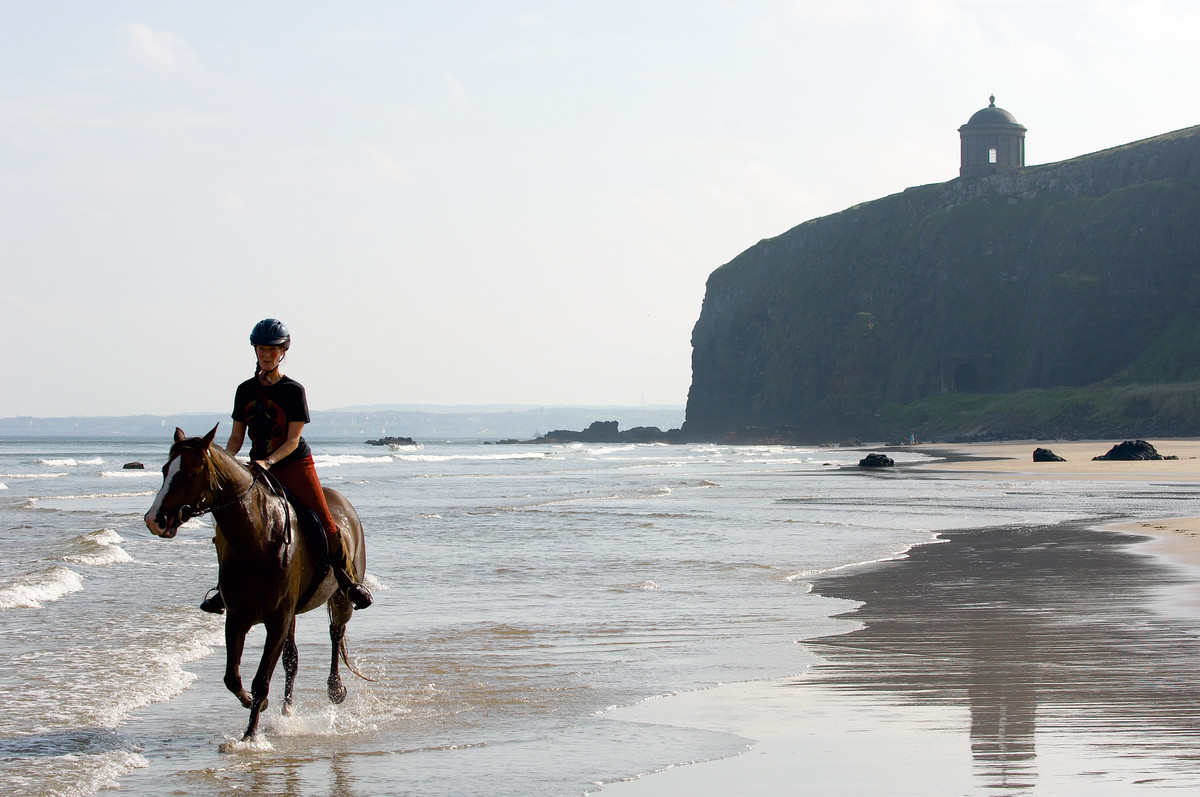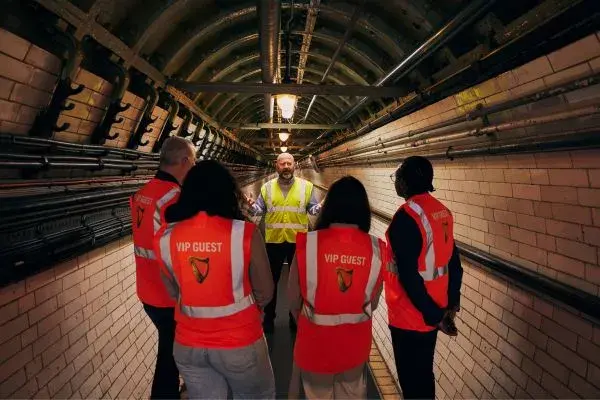

Traveller health and COVID-19 update
Whether you’re looking for advice on passports or wandering whether you can bring your pet to Ireland, find your answers here
What's on this page?
GOOD TO KNOW
COVID-19 (Coronavirus) update
The authorities in the Republic of Ireland and Northern Ireland continue to take measures to protect public safety and limit the spread of COVID-19 on the island of Ireland.
Republic of Ireland
The authorities of the Republic of Ireland advise against all non-essential travel to the island for the time being and most travellers arriving into the Republic of Ireland are required to complete a Public Health Passenger Locator Form and self-isolate for 14 days. The mandatory self-isolation for most travellers arriving into Ireland is in place until further notice with the situation under review.
You can find the latest updates and travel advice at the Irish government website: www.dfa.ie/travel.
Northern Ireland
No self-isolation is required from visitors from low to medium risk countries. You can find the latest information and travel advice for Northern Ireland at www.nidirect.gov.uk.
COVID-19 travel questions
While healthcare throughout the island is of a high standard, you can expect all systems to be under significant pressure until further notice.
Republic of Ireland COVID-19 Safety Charter
The COVID-19 Safety Charter is a voluntary initiative for businesses in the Republic of Ireland that is designed to reassure visitors that government approved hygiene and safety procedures are in place. In addition to Ireland’s sector-specific operational guidelines for tourism businesses on how to meet government health recommendations, businesses signing up to the Charter and displaying the Charter logo are committing to observe and adhere to strict safety protocols.
Visitors can be assured that all businesses and their staff are displaying the COVID-19 Safety Charter logo have committed to strict hygiene and safety protocols and:
- Have a clear understanding of the COVID-19 infection
- Are aware of their role and responsibility in preventing the spread of COVID-19
- Have a clear understanding of the standard precautions needed to control infection
- Consistently demonstrate correct hand-washing technique and practices
- Apply all of this knowledge throughout the businesses’ operations.
Northern Ireland – We’re Good to Go
Northern Ireland’s tourism and hospitality industry has adopted the "Good to Go" policy which presents certified evidence that a business has adhered to government guidelines and is safe to re-open. The programme is aimed at accommodation providers, visitor attractions, restaurants and pubs, business conference and events venues and tour and coach operators.
"We’re Good To Go" is the official mark to signal that a tourism and hospitality business has worked hard to follow government and industry COVID-19 guidelines and has a process in place to maintain cleanliness and aid social distancing.
The "We’re Good To Go" scheme is a way for tourism businesses to reassure visitors and guests that:
- They are adhering to government and public health guidance, including the social distancing and cleanliness protocols that must be in place
- Have carried out a COVID-19 risk assessment
- Have implemented the required health and safety processes to conduct business safely.
Most festivals and outdoor events have been cancelled or postponed. Please check festival websites for updated information. As it stands, groups of up to 30 people are allowed to meet outdoors in Northern Ireland. In the Republic of Ireland, outdoor gatherings are limited to 200 people. This is subject to change.
Republic of Ireland
The latest information and support about COVID-19 in the Republic of Ireland can be found on the Health Service Executive’s website.
Northern Ireland
You can get the most up-to-date information and guidance on COVID-19 in Northern Ireland at the official Public Health Agency Northern Ireland’s website.
Contact us
If you can’t find the information you need then drop us a line.
Travel to Ireland
If you are concerned about how the COVID-19 situation could affect your travel plans, we recommend that you check with your airline, tour operator, cruise line, event organiser or transport and accommodation providers.


Downhill Strand, County Londonderry
Healthcare in Ireland
Ireland has great healthcare, but there are a few things to keep in mind before you go. If you’re bringing medicines with you into Ireland, carry them in their original, clearly labelled container, along with your prescription or a letter from your doctor.
It’s a rule of thumb that anything over a three-month supply of medicine will be questioned and any “controlled drugs” as well as any syringes or needles, should be declared and explained in a letter from your doctor.
Travel and medical insurance
You should always obtain travel insurance to cover any potential overseas medical costs including medical repatriation/evacuation, repatriation of remains and legal costs, before you travel. Be sure to check for any exclusions that might affect your policy and that it covers all the activities you plan on doing in Ireland, and make sure that your travel insurance has medical cover. If you’re a member of the 28 EU countries or Iceland, Lichtenstein, Norway and Switzerland, bring a European Health Insurance Card (EHIC), which covers you for most medical care.
Pharmacies
There are plenty of pharmacies in Ireland, and they’re a good first stop for travellers seeking medical advice or a local referral. Most towns have one or two pharmacies and urban areas have many. Pharmacies generally operate from 9am to 6pm Monday to Saturday, but many pharmacies in urban areas open late and on weekends.
Bring a spare pair of glasses or contact lenses with you and your optical prescription just in case.
Vaccinations
Just as with most of western Europe, there are no vaccinations required to visit Ireland.
QA NOTES: For testing purposes.























